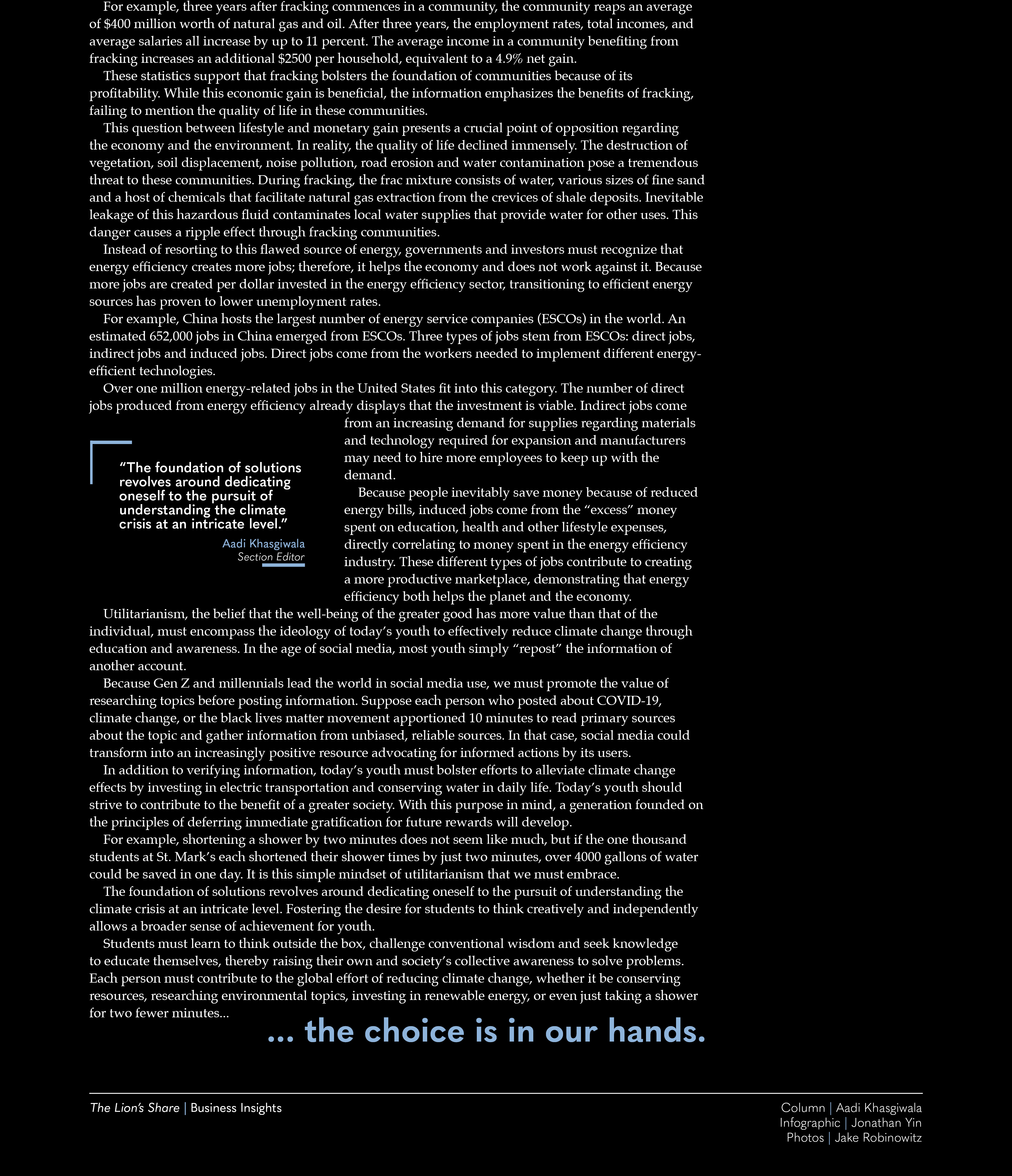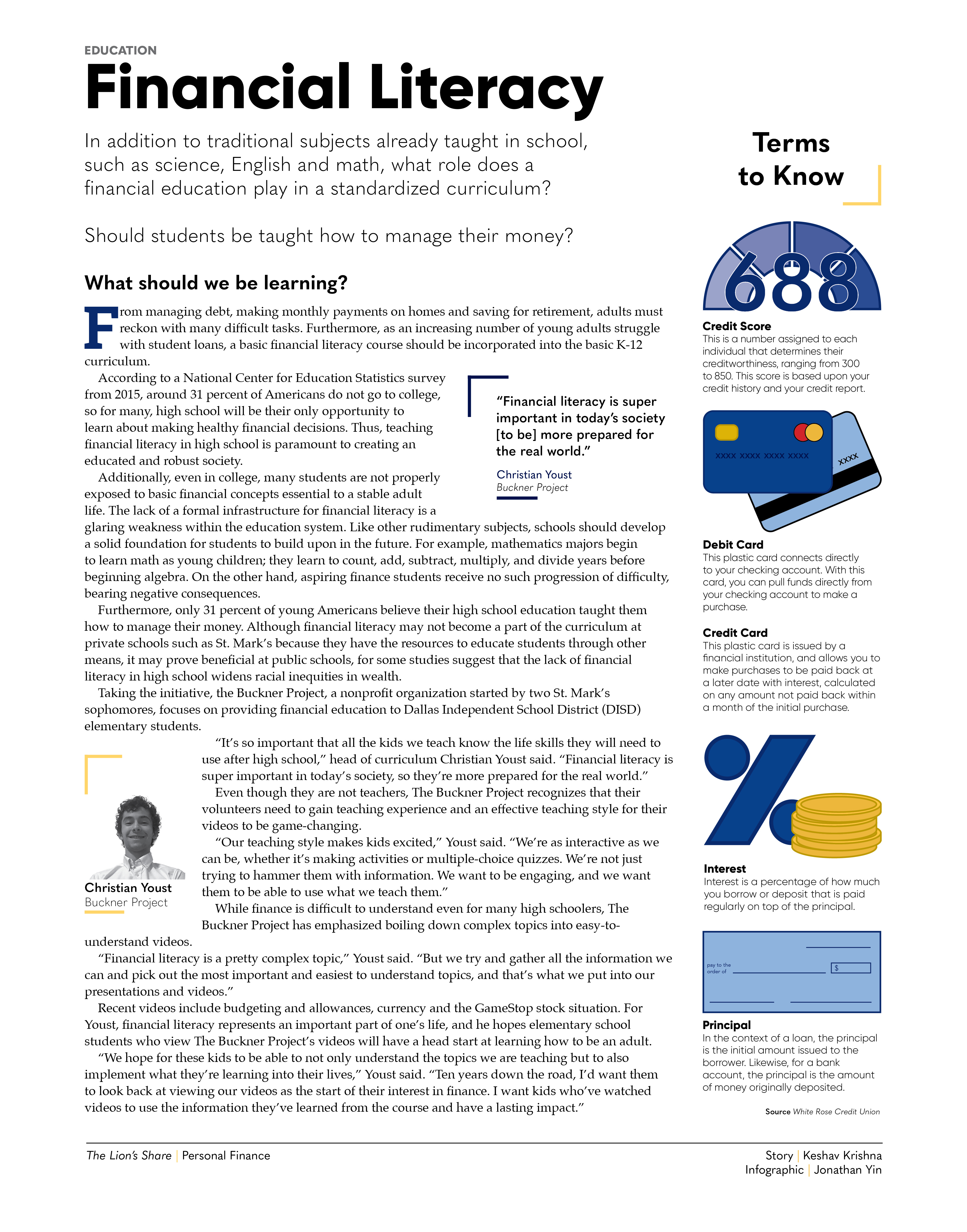

In addition to the normal subjects taught at school, what roles does financial education play in as standarized curriculum?
This crucial number determines many different aspects of our lives. Learn about a credit score in this short blurb.
What can the stock market tell us about the overall health of the economy.
In this time of difficulty, few stocks are pushing through and breaking boundaries
Driven students within the St. Mark's community take the initiative and start their own businesses.
Focusing on financial terminology, this glossary defines terms that are used throughout these stories.
The primary goal of a business is to earn a profit; however, sometimes the practices used to earn money may damage the environment greatly. So how do businesses adopt more environmentally friendly procedures while still remaining profitable?
Shreyan Daulat, a current sophomore, used his experience and expertise to help underprivileged students in DISD by starting a non-profit organization.

As students become integrated into society, their responsibilities grow with each passing year. From managing rigorous schedules to overcoming exceedingly difficult academic challenges, students already have a lot on their plate, but once they join the real world, another area of life demands their attention. Intimidating responsibilities such as managing credit score and investing in the stock market daunt the new members of the adult world. How does one prepare for this crucial aspect of adulthood?
"Money is a terrible master but an excellent servant." --P.T. Barnum


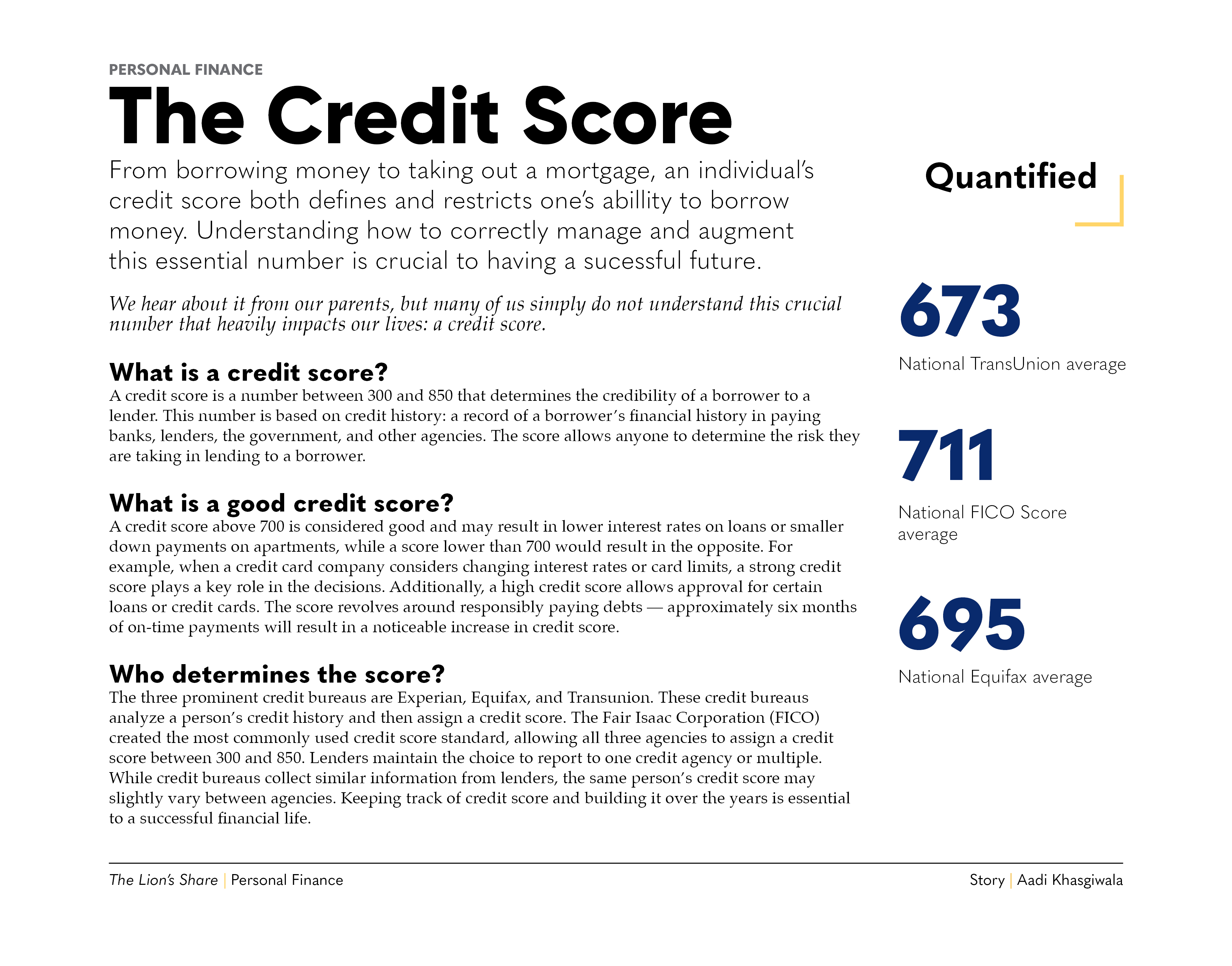
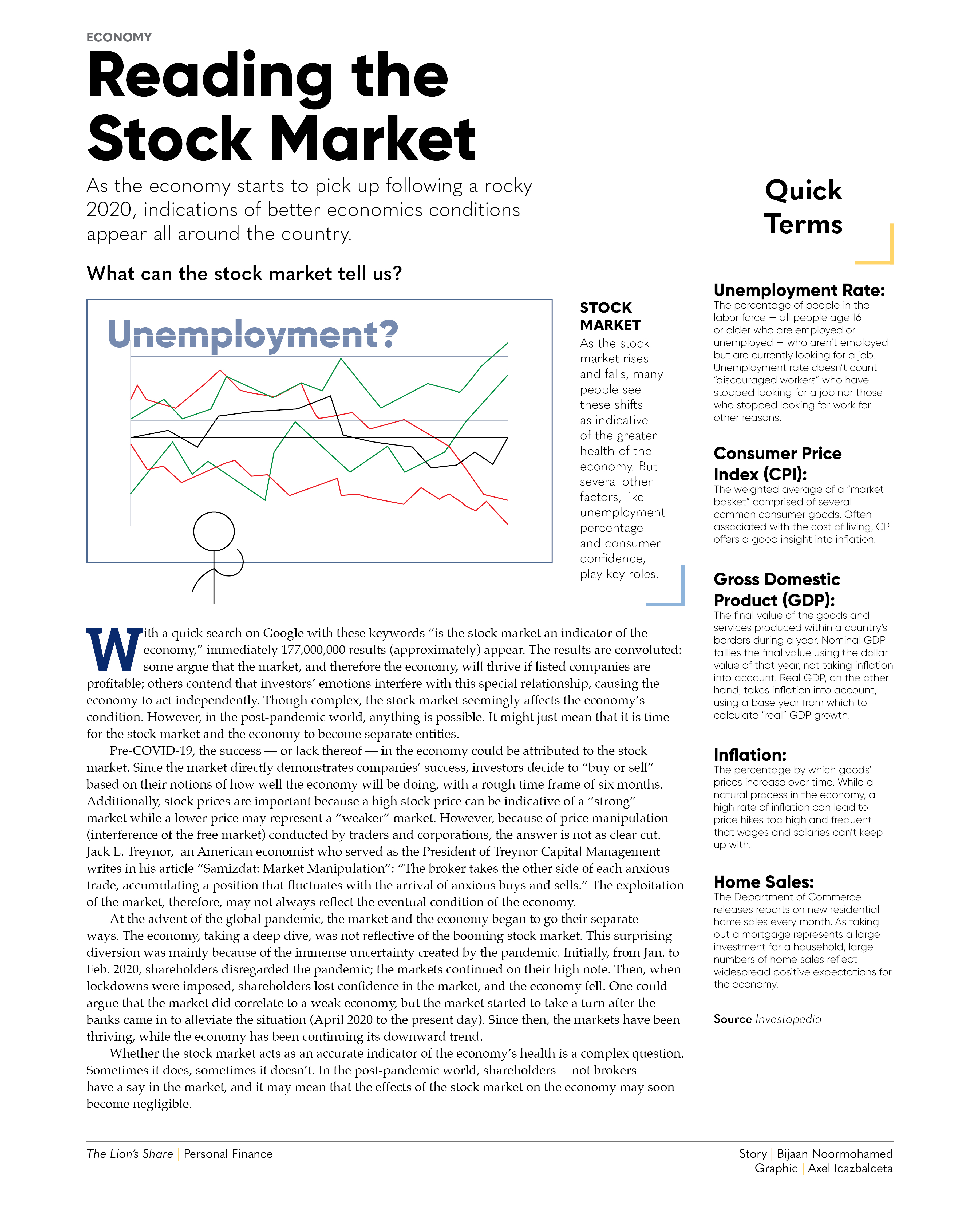
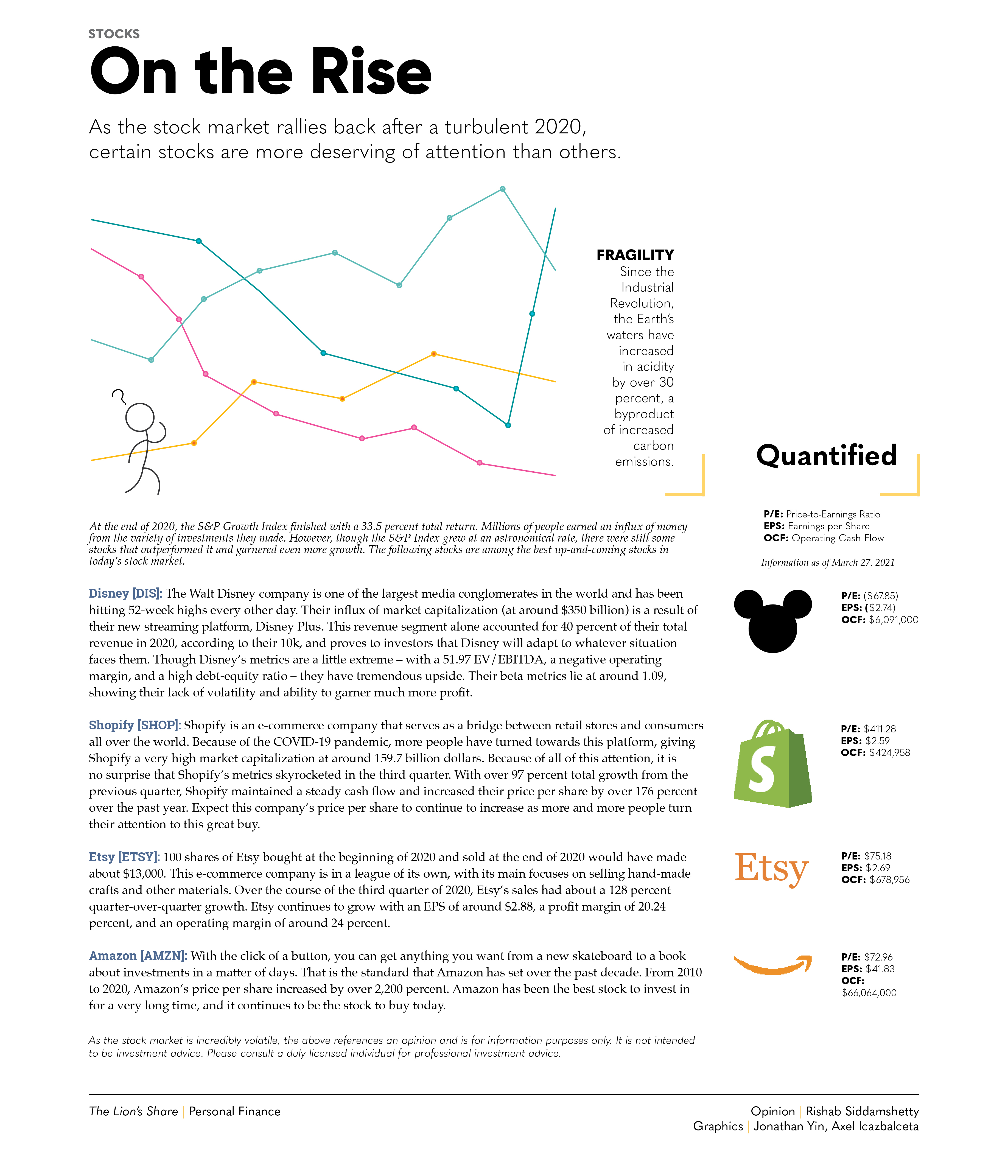

The global pandemic isolated individuals from society and destroyed economic and financial infrastructure. Both big business and small businesses were affected, but to what degree? Additionally, how did our community respond to this permanent change in the world?
"The price of US oil has turned negative for the first time in history." --The BBC

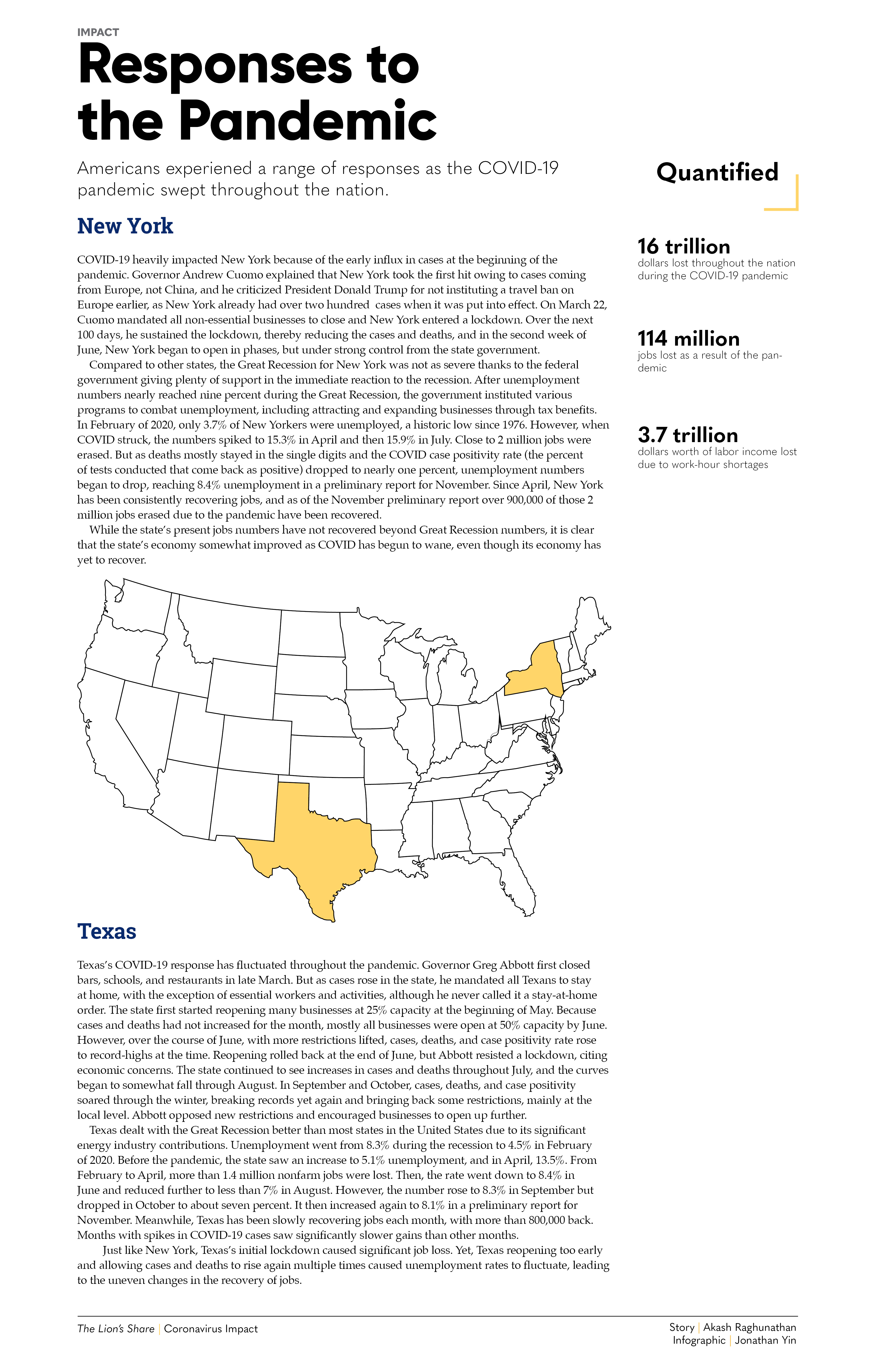
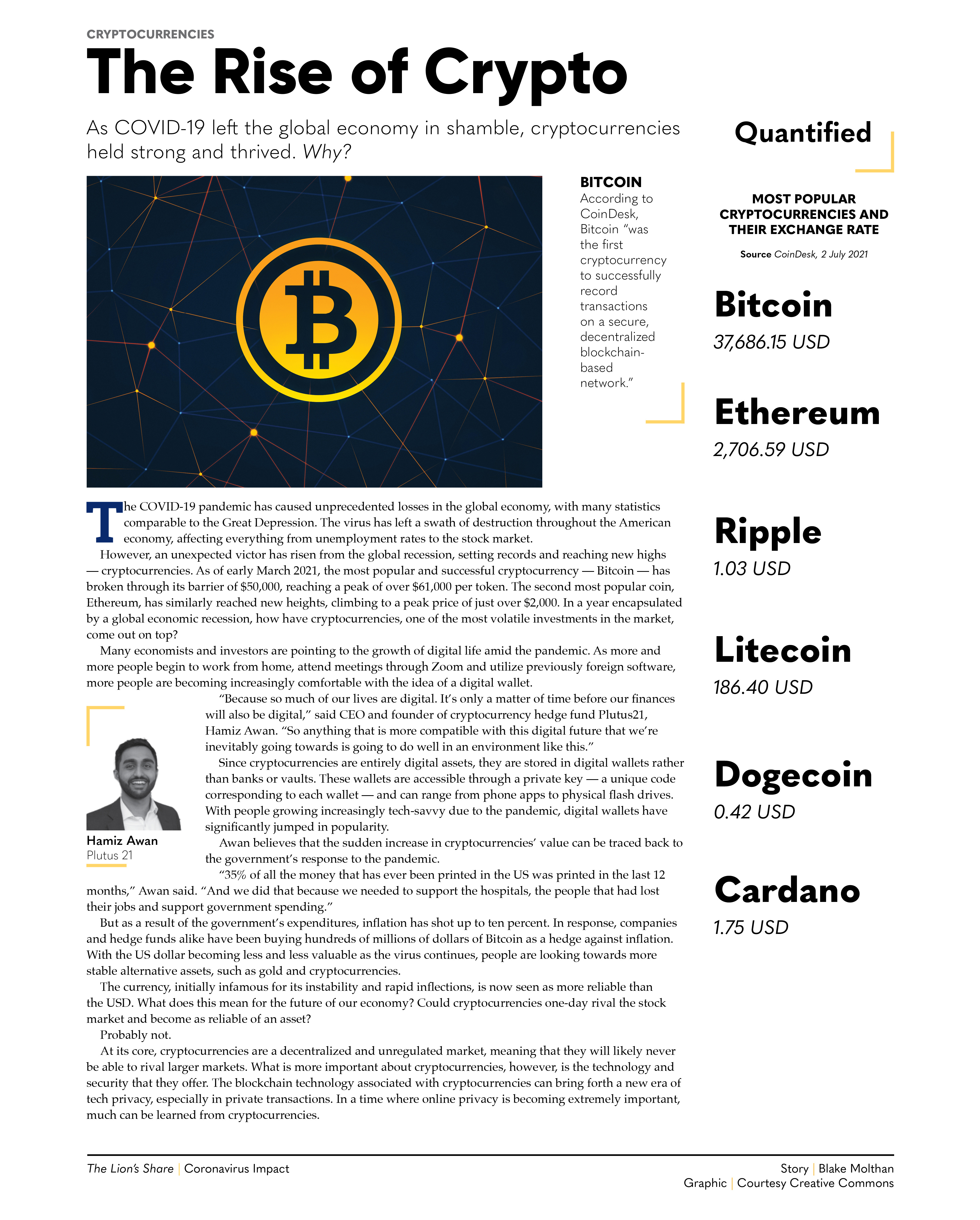
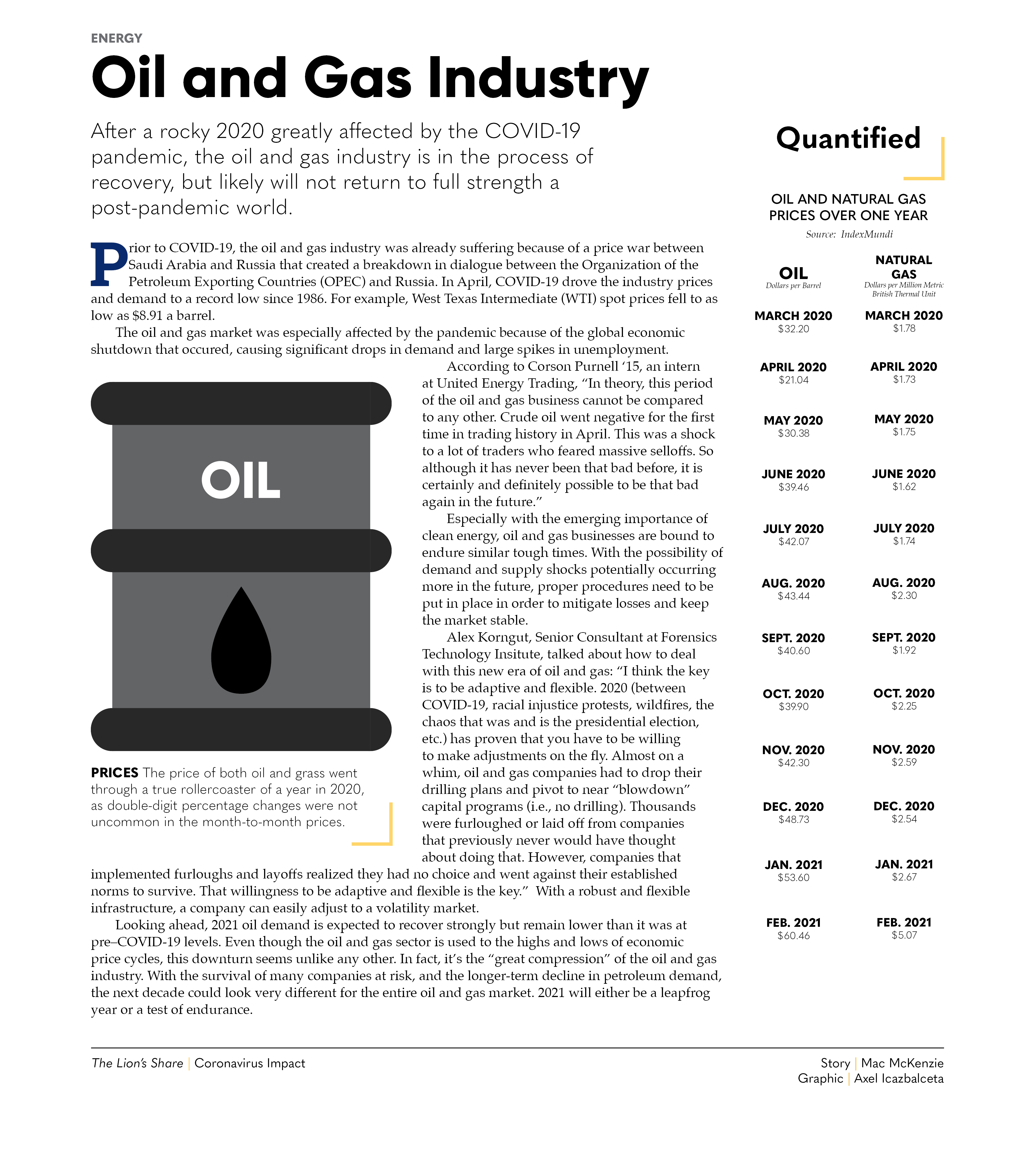
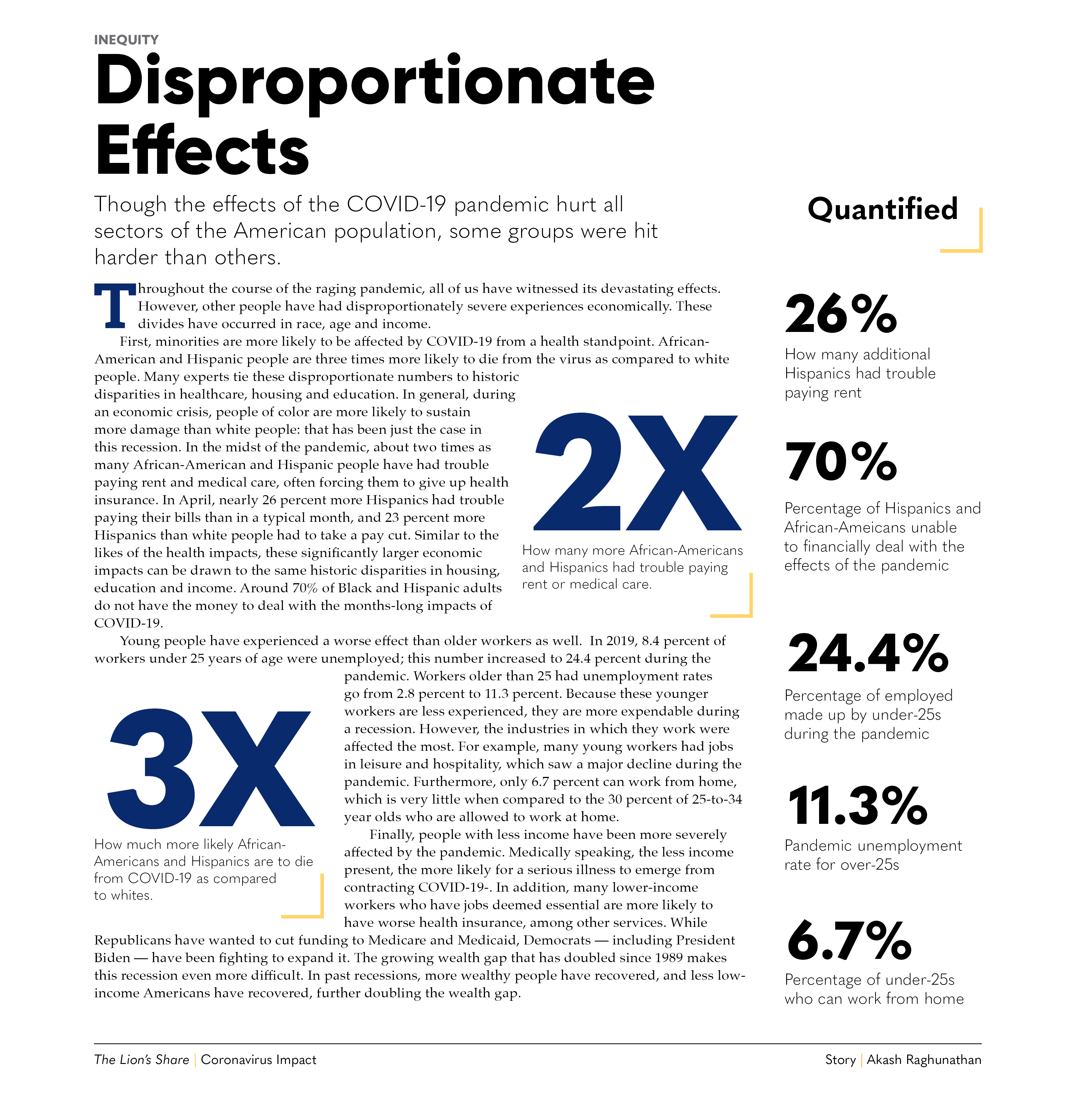
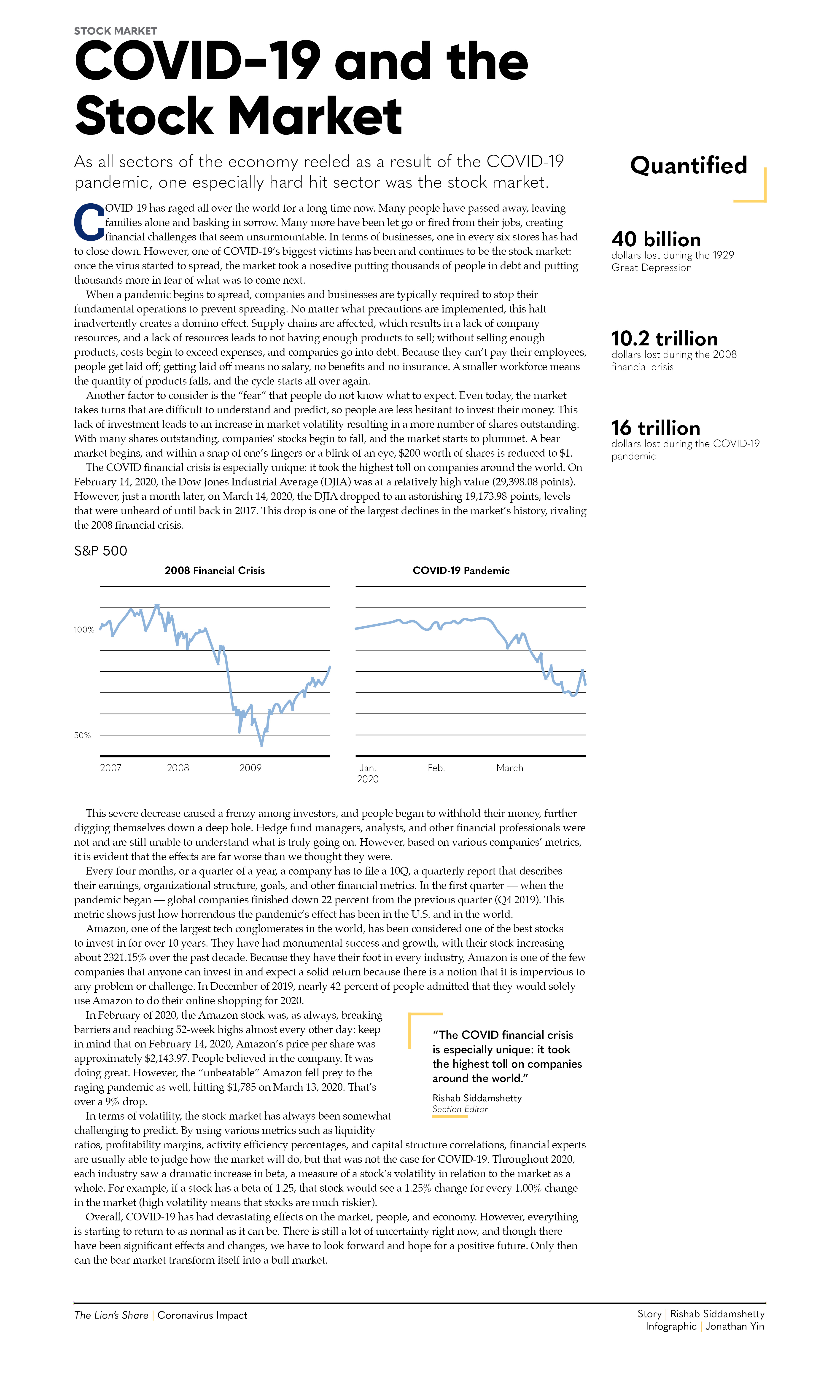
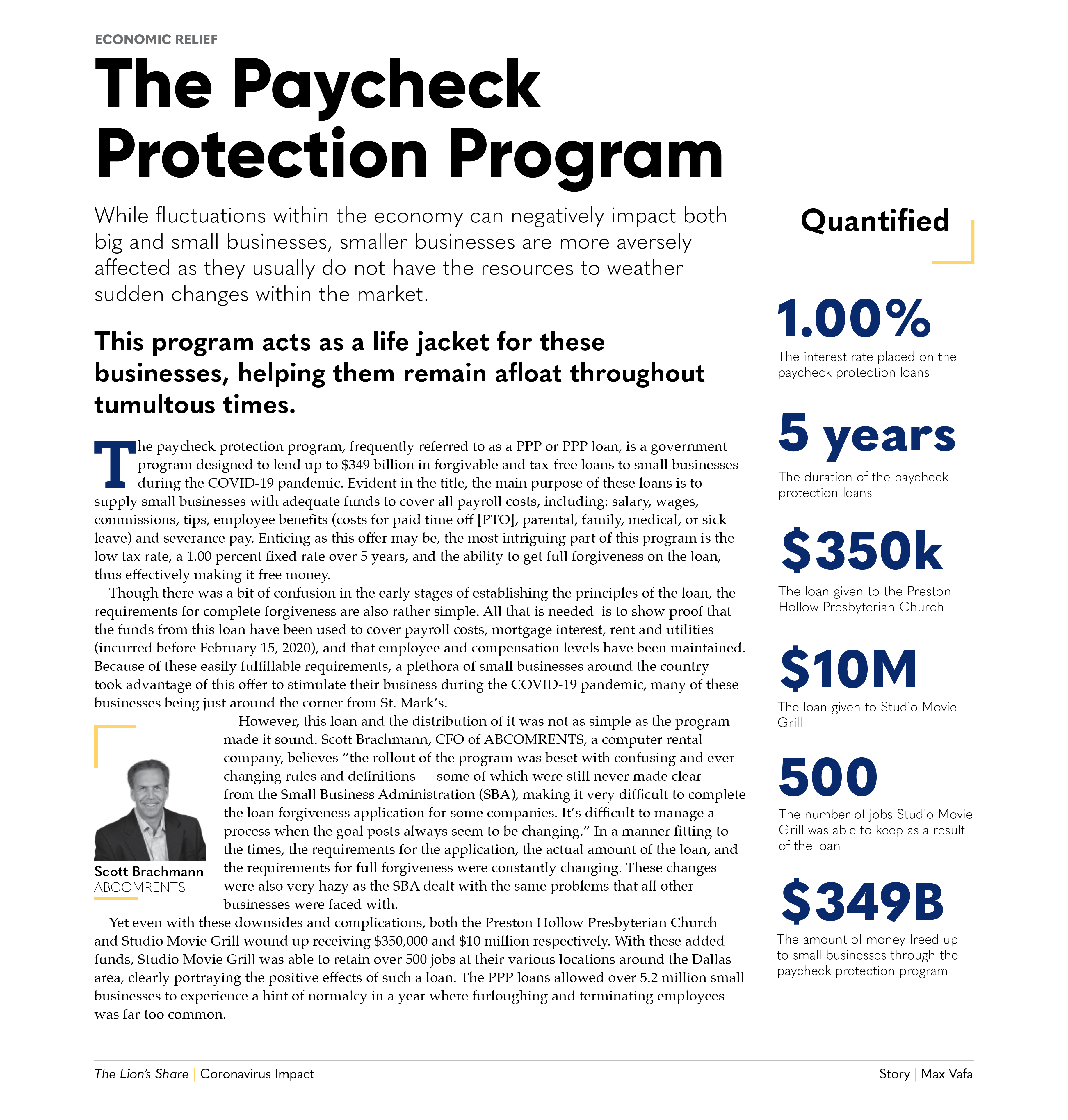

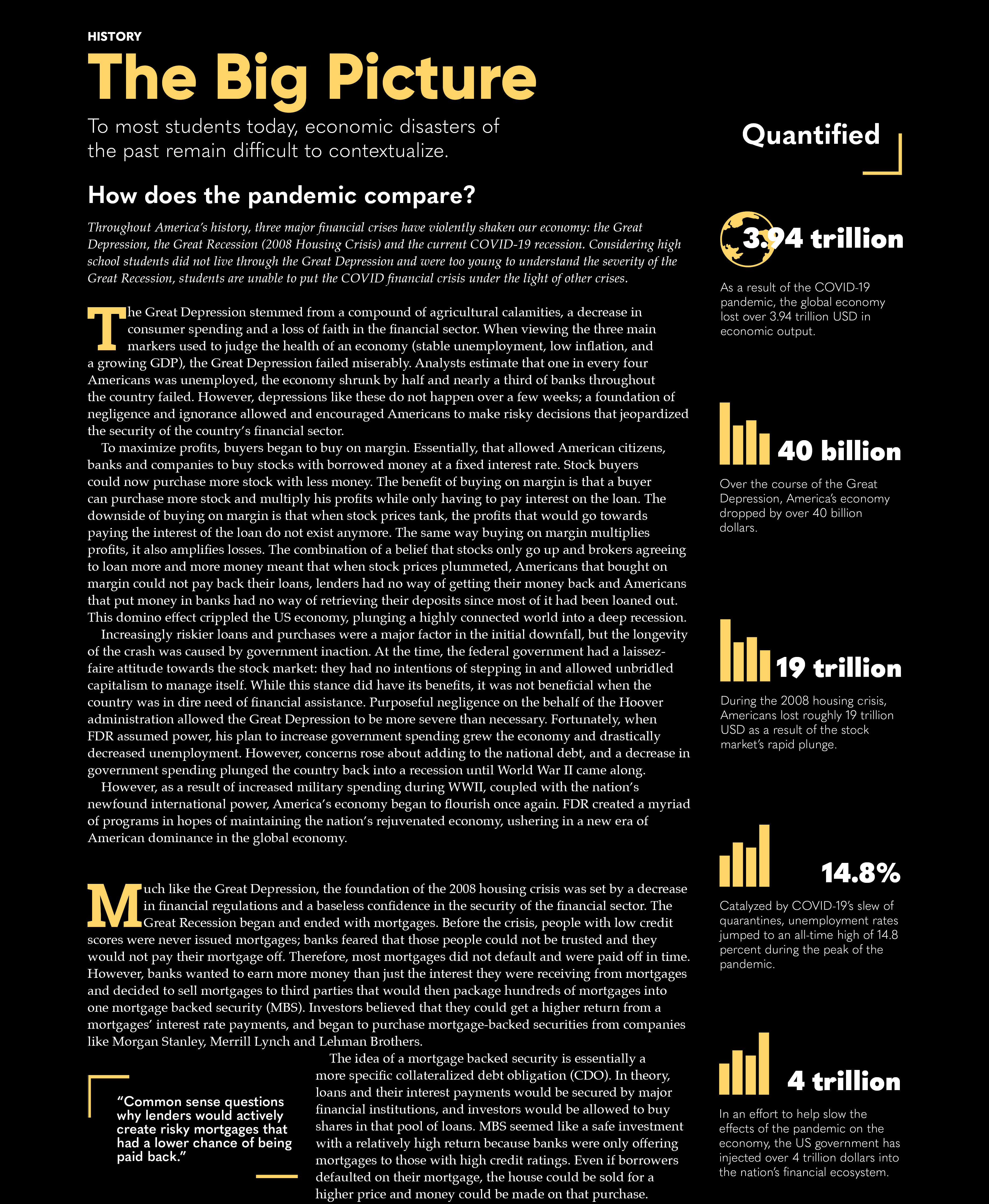


As age no longer becomes a barrier to success, students are taking the initiative to positively impact the world through their own businesses and organizations. From non-profit organizations to determined startups, students throughout our community hope to change the world through their innovative dreams.
A real entrepreneur is somebody who has no safety net underneath them. --Henry Kravis





